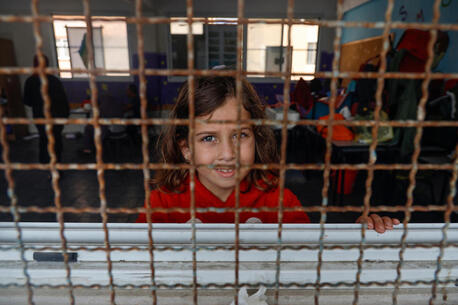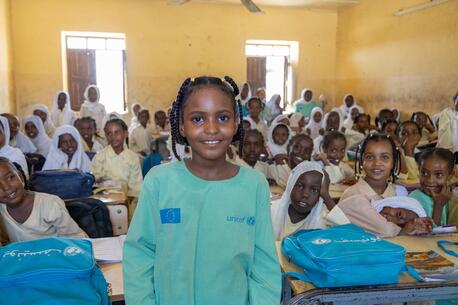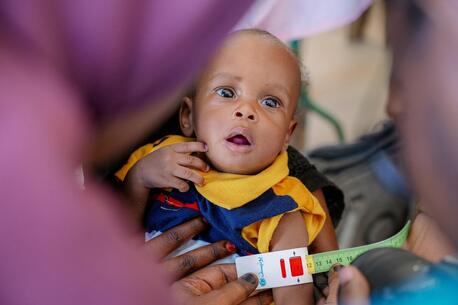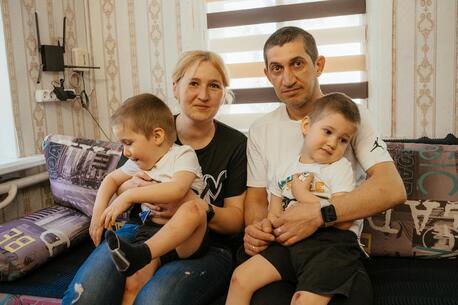
Children in Conflict: Urgent Help Needed
No child should have to grow up surrounded by violence. UNICEF is calling for an immediate end to the hostilities in Israel and Gaza. Compassion — and international law — must prevail.
Following the brutal attacks on Israel on Oct. 7 and the subsequent declaration of war, more than 1 million children are suffering in the midst of an ongoing humanitarian crisis.
“The images and stories are clear: children with horrendous burns, mortar wounds and lost limbs. And hospitals are utterly overwhelmed to treat them. Yet the numbers keep rising," UNICEF spokesperson James Elder said in a press briefing on Oct. 13.
“Israeli children being held hostage in Gaza must be safely and immediately reunited with their families and loved ones," he continued. “The humanitarian situation has reached lethal lows, and yet all reports point to further attacks. Compassion — and international law — must prevail.
"UNICEF is calling for an immediate ceasefire" Elder continued, "as 1.1 million people — nearly half of them children — have been warned to move out of the way ahead of what is expected to be a ground assault on one of the most densely populated places on the planet, but with nowhere safe for civilians to go."

UNICEF responds in emergencies to protect the rights of children
Every child has the right to a safe and healthy childhood.
UNICEF has been working in Gaza since the 1980's. It is one of 13 United Nations agencies implementing and scaling up humanitarian interventions in response to the immediate needs of children and families caught in the conflict.
"Children and families in Gaza have practically run out of food, water, electricity, medicine and safe access to hospitals, following days of air strikes and cuts to all supply routes," said Elder. “Gaza’s sole power plant ran out of fuel Wednesday afternoon, shutting down electricity, water and wastewater treatment. Most residents can no longer get drinking water from service providers or household water through pipelines.
"At least six water wells, three water pumping stations, one water reservoir and one desalination plant serving more than 1 million people have been damaged by air strikes."

In every war, children suffer most
Responding to urgent needs for safe drinking water in Gaza, UNICEF has provided water treatment reagent to sustain the UNICEF-supported desalination plant providing water for 75,000 people. UNICEF has further released medical supplies prepositioned in the Gaza Strip to hospitals, including medicines for at least 1,600 people, and is delivering essential mental health and psychosocial support.
“Humanitarians must be able to safely access children and their families with lifesaving services and supplies — wherever they may be," said Elder. “In every war, the ones who suffer the most are children. This is tragically true today.”

UNICEF's response will continue to focus on responding to the needs of children currently facing an urgent and pressing need for protection and humanitarian assistance. Your contribution can make a difference. Please donate.
HOW TO HELP
There are many ways to make a difference
War, famine, poverty, natural disasters — threats to the world's children keep coming. But UNICEF won't stop working to keep children healthy and safe.
UNICEF works in over 190 countries and territories — more places than any other children's organization. UNICEF has the world's largest humanitarian warehouse and, when disaster strikes, can get supplies almost anywhere within 72 hours. Constantly innovating, always advocating for a better world for children, UNICEF works to ensure that every child can grow up healthy, educated, protected and respected.
Would you like to help give all children the opportunity to reach their full potential? There are many ways to get involved.





